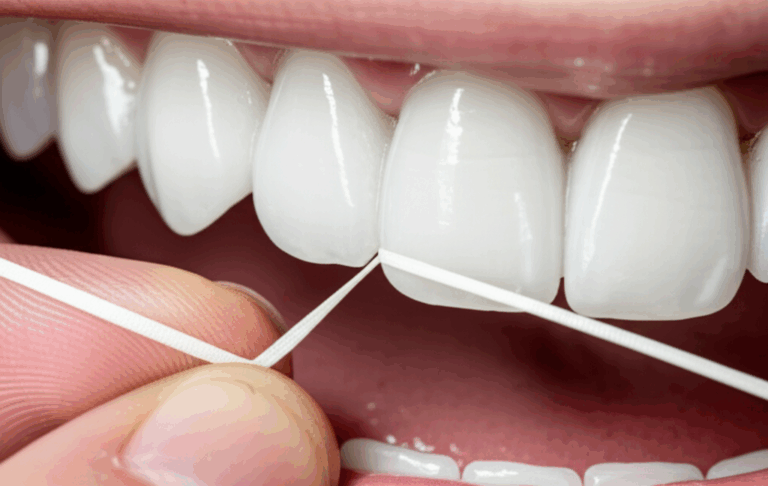
How to Get Money Back from Failed Dental Implants: My Step-by-Step Guide
Table of Contents
- Saving Every Scrap of Evidence
- Talking to My Dentist—And Why It Matters
- Getting That All-Important Second Opinion
- Negotiating Directly with the Dental Clinic
- Checking Warranties (and Not Just the Dentist’s)
- Making the Most of Dental Insurance
- Filing Complaints with Consumer Agencies and the BBB
- Reporting to the State Dental Board
- Trying Small Claims Court
- When I Considered Suing for Dental Malpractice
- Choosing the Right Professional
- Understanding Risks—And Not Skipping Fine Print
- How Taking Care of My Teeth Saved Me Headaches
- Is Legal Action Really Worth It? A Reality Check
Introduction: Why I Decided to Fight for My Money Back
If you’re reading this, you probably know the pain of a dental implant that went wrong. I still remember feeling awful—the pricey procedure I thought would fix my teeth just didn’t work. Not only did I lose thousands of dollars, but I also lost trust in my dentist.
Instead of just giving up, I decided to look for every possible way to get my money back. Along the way, I learned that patients have real rights and ways to get help—even if dental offices sometimes act like you’re just out of luck.
This guide is everything I wish I had known back then, step by step, from those first worried days to looking at legal stuff. What I learned might help you too. So let’s get started.
What Counts as a “Failed” Dental Implant?
When my implant failed, my first job was to figure out: is this just something unlucky, or did someone mess up? Turns out, “failure” means more than just pain or a tooth that looks strange. Here’s what I found out:
Early vs. Late Failures
Early failures hit soon after your surgery, sometimes just weeks or a couple of months later. Watch out for:
- The implant moves or never feels secure.
- This is called “lack of osseointegration.” If the bone doesn’t stick to the implant, it will always be loose.
- Serious infection where the implant is.
- You might see swelling, redness, pus, or pain that keeps coming back.
- Tingling or numbness in your lips or chin.
- This could mean nerve damage from putting the implant in the wrong spot.
- Pain that just keeps going or gets worse, not better.
Late failures are different; my own problems started almost a year after surgery, so I had to learn fast:
- Gum disease attacks the tissue around your implant.
- This is called peri-implantitis—basically, your implant loses its grip.
- Something breaks.
- This could be the implant itself, a loose connector, or a cracked crown. Even a small mistake when putting it in can make things fall apart later.
- Pain, bone loss, or swelling that comes back long after you healed.
Mistakes Versus Unlucky Complications
My dentist told me “some failures just happen,” but here’s what I learned:
- Bad luck can happen even if there’s nothing wrong with how things were done; your body might not like the implant, or maybe you have health problems that slow down healing.
- Mistakes or bad care is another thing. Here’s what makes it more likely the dentist did something wrong:
- They went too fast or didn’t do the right tests.
- They didn’t keep things clean, so infection started.
- They put in the implant the wrong way or used the wrong size, which causes things like nerve damage.
- You didn’t get clear instructions on how to take care of it after surgery, so things got worse.
Knowing all this helped me figure out if I had a real reason to ask for my money back or even think about a lawsuit. If you want more info about dental implant problems, you can also check teeth information for more details on why implants sometimes fail.
First Moves: What I Did as Soon as My Implant Failed
The biggest mistake I almost made? Not acting fast. Here’s what I did that made a difference and what I now suggest to anyone else in the same spot.
Saving Every Scrap of Evidence
My first move was to save everything:
- Every bill, receipt, payment plan, and insurance paper.
- Copies of X-rays, CT scans, and any written plan from my dentist.
- Every email or text I had with the dentist or office staff.
- Pictures of swelling, wounds, or anything weird in my mouth before or after things went wrong.
- A list of dates: when symptoms started, when I called the office, what was said.
This paper trail is really important. If you want money back or have to go to court, this stuff helps a lot. If you don’t have your dental records, ask the office in writing—they have to give them to you.
Talking to My Dentist—And Why It Matters
Even though I was pretty upset, I booked a follow-up with my dentist to talk about what happened. What I learned:
- I calmly explained what went wrong and asked what they thought happened.
- I asked, in writing, about refund options or if they would redo the work for free.
- Always get these answers in writing—don’t let everything be just talk.
A lot of dentists will only offer to fix things, give you a refund, or help if you push for it with real proof and don’t back down.
Getting That All-Important Second Opinion
Next, I saw another oral surgeon—someone who really knew about failed implants (sometimes from a different implant dental laboratory). I paid for a full check and asked for:
- A clear, written reason for why my implant failed.
- Was it just bad luck, or did the first dentist mess up?
- How much it would cost to fix and if that was even possible.
This helped me know if what happened was just a risk I took, or if I should push for something more, like talking to insurance or even legal action.
How I Explored My Options for Getting a Refund or Compensation
After a lot of phone calls and digging, I found I had more choices than I first thought. Here’s what I tried and what worked best.
Negotiating Directly with the Dental Clinic
Before filing complaints or going to court, I tried just talking to the clinic:
- I wrote a letter explaining what went wrong and included proof (second opinion, photos, bills).
- I politely but firmly asked for a full refund or for them to pay for fixing it. If I wasn’t sure who was at fault, I asked for a partial refund.
- I made it clear I knew my rights and would file complaints if I had to.
Sometimes clinics want to avoid bad reviews or investigations and will offer money back or pay for a fix.
Checking Warranties (and Not Just the Dentist’s)
Going through old papers, I checked:
- The contract—sometimes there’s a part about things being guaranteed.
- The company that made the implant—lots of these companies have a warranty for broken parts.
- Sometimes a company will cover hardware that breaks, like the implant itself, even if the dentist won’t. They might even pay a new dentist to fix it.
Warranties can really help, but you have to ask about them—dental offices don’t always tell you unless you bring it up.
Making the Most of Dental Insurance
If you have insurance, check if it covers fixing failed implants. Some will help pay for another surgery or give back some of your money if the implant failed because of infection or an accident.
If insurance pushes back, file an appeal with all your proof and the second opinion included. Sometimes, just not giving up works.
Filing Complaints with Consumer Agencies and the BBB
When talks broke down, I tried outside help:
- I filed a complaint with my state’s consumer protection agency.
- I reported the problem to the Better Business Bureau. They can’t force refunds, but can pressure businesses.
- I checked if my dentist belonged to the American Dental Association (ADA) and found I could file a complaint there—some dentists really care about their reputation with the ADA.
Sometimes a string of complaints is enough to get them to offer a refund or some help, especially if the clinic cares about what others think.
Going Further: Complaints, Courts, and Malpractice Lawsuits
If your dentist won’t budge, or if the problem is really bad (like nerve damage or a big infection), here’s what you can think about next.
Reporting to the State Dental Board
Every state has a dental board to protect patients, not just dentists. I sent in a complaint about my case:
- What happened, with proof and details.
- Why I felt it was bad care or not right.
- What I wanted as a fix.
The board can look into your case and punish the dentist if they did something really wrong, but they can’t always make the dentist pay you back. Still, their investigation can help you ask for a refund.
Trying Small Claims Court
If your case is for just a few thousand dollars (the limit depends on your state), small claims court is an option—no lawyer needed.
- Gather all your proof: bills, expert letters, messages, photos.
- Courts want facts—show the judge your proof.
This isn’t as scary as it sounds, but you must act before time runs out—usually 1 to 3 years from when the trouble started.
When I Considered Suing for Dental Malpractice
If you lost a lot of money or had big medical problems, you might want to think about a dental malpractice lawsuit. Here’s what I learned:
- You usually have to show:
- The dentist was supposed to take care of you.
- They didn’t do their job right.
- Their mistake caused your problem.
- You actually lost money or suffered because of it.
- Malpractice lawyers often give free advice and only get paid if you win.
- If you sue, expect a slow process that can take a long time—and could mean going to court.
Most lawsuits settle before a trial, but it’s not easy to win in court. Still, if the harm is serious or you lost a lot, it can be worth it.
Hard-Earned Lessons: Preventing More Dental Implant Nightmares
Nobody wants to go through this mess twice. Here are the things I always do before big dental work now.
Choosing the Right Professional
I always:
- Check to make sure they’re really trained and licensed. Do they belong to real dental boards or groups?
- Look up real reviews and ask how many implants they have done—some dentists might say yes but don’t have a lot of experience.
- Ask which lab they use—good labs mean better results.
Understanding Risks—And Not Skipping Fine Print
The first time, I barely looked at what I was signing. Now, I ask:
- What are the real risks for someone like me (do I need extra procedures, do I smoke, etc.)?
- What does the warranty or guarantee really cover?
- What will happen if something goes wrong—will I get my money back or a redo?
Getting these answers before you start makes things easier later.
How Taking Care of My Teeth Saved Me Headaches
Mistakes don’t just come from dentists. If you don’t keep your mouth clean after surgery, even the best implant can fail.
Brush and floss around your implant, follow every instruction, and keep proof you did your part—this can help if they try to say it’s your fault.
If you want more details on staying healthy after an implant, teeth health is good to check out.
Is Legal Action Really Worth It? A Reality Check
Here’s what I thought about:
- Time and stress: Lawsuits can take a long time and be really tough.
- How much you might get back: If your loss is small, small claims court or a direct talk with the dentist might be better than suing.
- Peace of mind: Sometimes all you need is a refund or to know the dentist was actually punished.
Conclusion: You Really Do Have Rights (And Hope)
The most important thing I learned is: you don’t have to just accept a failed dental implant. You paid for help—not for more trouble.
Start by saving your proof, ask hard questions, and don’t be shy about seeing another expert. Whether you talk it out, file a complaint, or go to court, remember: you have rights.
If you learn anything from my story, know this: you don’t have to fight alone. It’s not always easy, but with the right info and a little patience, you can get your money back—or at least make sure this doesn’t happen to you again.








